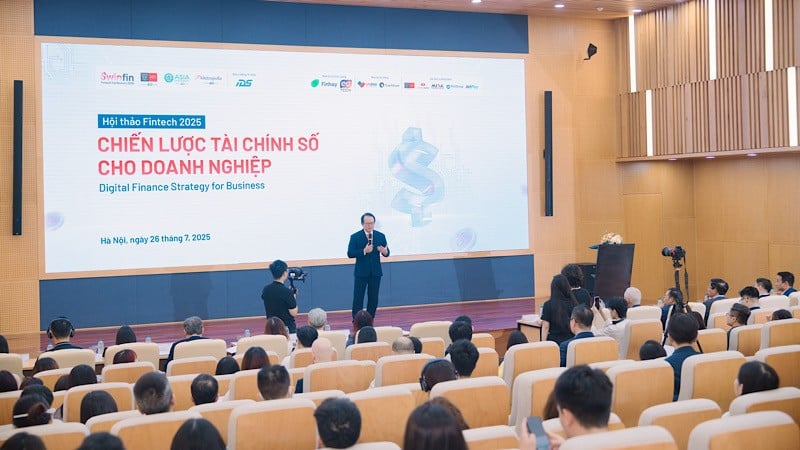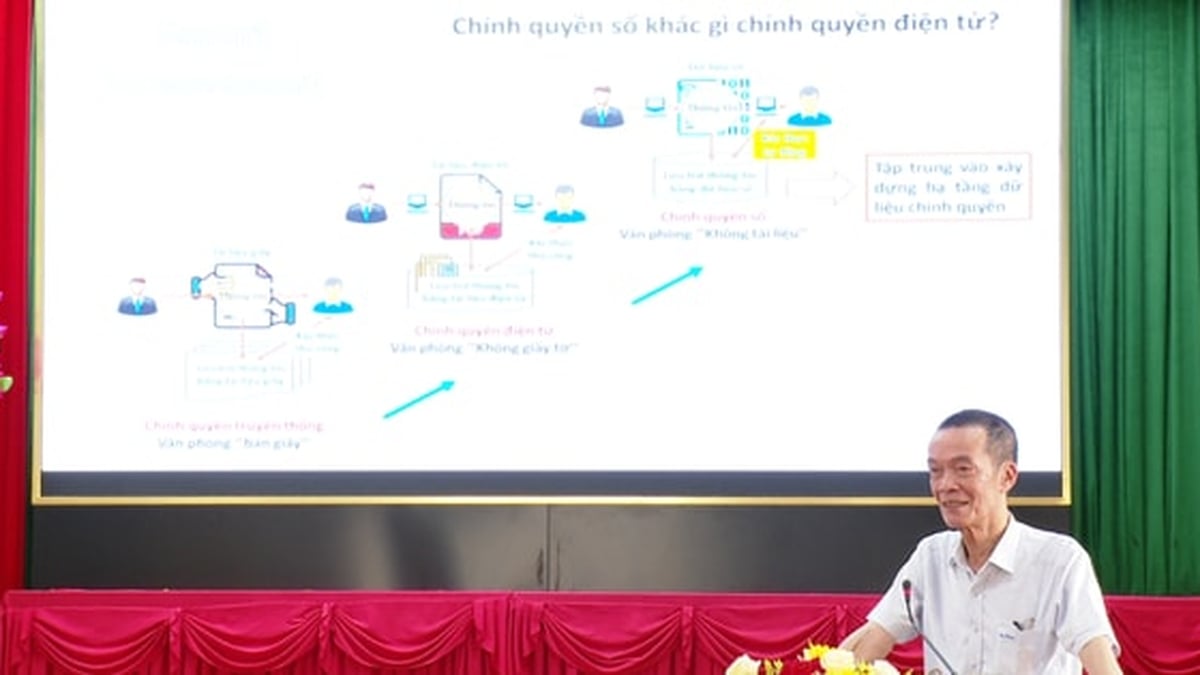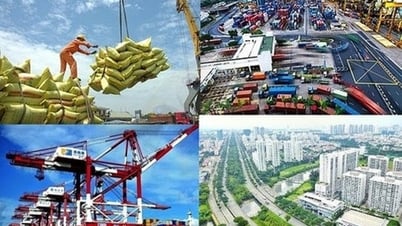
At the workshop, financial experts also focused on discussing and sharing how to apply financial technology (Fintech) to optimize operations, enhance competitiveness and adapt in the digital age.
Currently, in the face of the global digital transformation wave, Fintech is gradually changing the way businesses manage their finances, from payment processes, cost control to forecasting and strategic decision making. In Vietnam, digital banking models, e-wallets, artificial intelligence (AI) and big data analysis (Big Data) are increasingly widely applied, contributing to improving operational efficiency, increasing flexibility and competitiveness for businesses.

Speaking at the conference, Dr. Hoang Viet Ha, Director of Swinburne Vietnam and Chairman of the Fintech 2025 Conference, said that this is a very useful event for businesses today, especially small and medium enterprises in Vietnam. Accordingly, participating businesses have the opportunity to access suitable digital financial solutions, expand connections, and seek strategic cooperation opportunities in the ever-expanding digital financial ecosystem.
“This is expected to be the foundation to promote businesses, especially small and medium enterprises, to transform strongly, increase adaptability and create sustainable competitive advantages in the digital age,” Dr. Hoang Viet Ha shared.
According to Ms. Pham Thuy Chinh, Vice Chairwoman of the National Assembly's Economic and Financial Committee, we are living in an era of strong digital transformation, where financial technology (Fintech) has been creating fundamental changes to the financial and banking system and the entire economy . As a tool, a driving force and a foundation for the development of the digital economy , the strong development of Fintech will lead to the development of the digital economy , and vice versa, a mature digital economy will create favorable conditions for fintech to explode.

The rapid development of Fintech in recent years is a vivid manifestation of the digital transformation process taking place globally and Vietnam is no exception. Models such as digital payments, e-wallets, peer-to-peer lending (P2P lending), digital banking, blockchain technology, artificial intelligence (AI) in credit analysis, and many other forms of innovation have been and are gradually fundamentally changing the way traditional financial and banking services are provided.
“Fintech not only expands financial access opportunities for people, especially in rural and remote areas, but also supports small and medium-sized enterprises to improve operational efficiency, reduce costs and enhance competitiveness,” Ms. Pham Thuy Chinh emphasized.

At the workshop, many speakers also shared the view that Fintech is an inevitable trend in the journey of national digital transformation. Proactive adaptation, creating appropriate institutions and promoting multi-sectoral and multi-sector coordination will be key factors for Vietnam to effectively take advantage of the opportunities that Fintech brings, while at the same time controlling the risks that arise.
Notably, Associate Professor, Dr. Pham Thi Lien - Director of Training, Dean of Business and Finance Faculty, Asia University Vietnam, suggested the issue of connecting Universities and Enterprises to meet the demand for digital financial human resources in the context of digital transformation that will greatly impact human resource requirements. Accordingly, to meet the rapidly increasing demand for digital financial human resources, the gap between training and practice needs to be narrowed, and close cooperation between universities and enterprises will be the key to success.
In addition, according to some speakers, besides its great potential, Fintech is posing many management challenges and requiring the completion of the legal framework to keep up with the pace of technological innovation, solving problems arising from new business models, risks of information security, personal data security, anti-money laundering and high-tech crime; ensuring the balance between innovation and financial stability; strengthening consumer confidence; ensuring national economic and financial security...
In that context and to institutionalize the Party's policies and resolutions, especially the "strategic quartet", including: Resolution No. 57-NQ/TW on breakthroughs in science and technology development, innovation and national digital transformation; Resolution No. 59-NQ/TW on international integration in the new situation; Resolution No. 66-NQ/TW on innovation in law-making and enforcement to meet the requirements of national development in the new era; Resolution No. 68-NQ/TW on private economic development, the National Assembly, the Government and management agencies have been paying attention to perfecting the legal system, including the legal framework for Fintech activities such as the Law on Credit Institutions amended in 2024 and 2025, which includes regulations on credit scoring, data sharing via Open API, peer-to-peer lending (P2P lending), Decree No. 94/2025 of the Government detailing the sandbox mechanism in the banking sector. Most recently, at the 9th Session, the National Assembly passed Resolution No. 222/2025/QH15 on the International Finance Center (IFC).
Source: https://nhandan.vn/giai-phap-tai-chinh-so-but-pha-cho-doanh-nghiep-post896695.html




































































![[Photo] National Assembly Chairman Tran Thanh Man receives Chairman of Morocco-Vietnam Friendship Association](https://vphoto.vietnam.vn/thumb/402x226/vietnam/resource/IMAGE/2025/7/26/b5fb486562044db9a5e95efb6dc6a263)


































Comment (0)